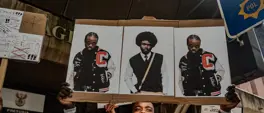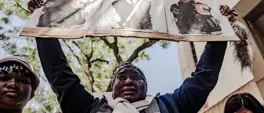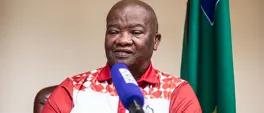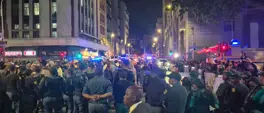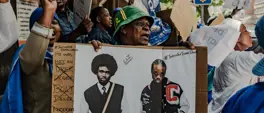La Gardi's right of admission sign does not trump legislation: SAHRC
Palesa Manaleng
21 July 2023 | 13:42Eyewitness News asked SAHRC Eastern Cape manager, Dr Eileen Carter, whether the owner was within his rights to deny LGBTQI+ patrons access to his store.
JOHANNESBURG – The South African Human Rights Commission (SAHRC) is investigating the matter of a shop owner in Gqeberha who last week placed a sign outside his business banning members of the LGBTI+ community from entering.
“LGBTI not welcome at La Gardi catering plastics, save our children,” read the sign outside the establishment.
Eyewitness News asked the SAHRC's Eastern Cape manager, Dr Eileen Carter, whether the owner was within his rights to express his feelings.
"The shop owners have the right to freedom of expression but what we must remember is that freedom of expression is not an absolute right and it can be limited, that’s what Section 16 of the Constitution says and that is exactly what Qwelane, the case that we use as precedent from what the Constitutional Court says, and that is what our Equality Act says," said Dr Carter.
The SAHRC Eastern Cape manager was referring to the case Jonathan Dubula Qwelane versus South African Human Rights Commission and Another, in which Mr Qwelane, a popular columnist, penned an article titled Call me names – but gay is not okay, which was published by the Sunday Sun newspaper in 2008. In the article, the applicant compared gay and lesbian people to animals and postulated that they were responsible for the rapid degeneration of values in society.
In this case, the owner of La Gardi Catering Plastics, Dawood Lagardie, banned LGBTI+ individuals from his shop and asked the public to “save our children”.
“These sorts of attacks we have witnessed in places of employment, schools, institutions of higher learning and social spaces, this really isn’t a first and accounts of violence against LGBTI+ people have become commonplace and each year we are forced to bury victims of brutal attacks motivated by heterosexism and homophobia,” said Programs Coordinator Forum for the Empowerment of Women (FEW), Jade Madingwane.
Dr Carter points out that the right of admission reserved does not trump the legislation relating to equality. One has the right to reserve admission but it cannot discriminate or unfairly discriminate against any person based on a prohibited ground.
“That would mean if I prohibit a person from gaining access to a public service that I provide based on the fact that they are men or women or African or a person with a disability and in this case, sexual orientation that is against the Constitution and that is against the Equality Act.”
Dr Carter further points to Section 6 specifically in the Equality Act in this respect, which says the right of admission does not allow one to contravene the legislation of this country.
“Section 2.12 of the Constitution of the Republic of South Africa guarantees us the right to Freedom and Security of Person, Section 2.16 the right to Freedom of Expression, Section 2.18 the right to Freedom of Association and Section 2.21 the right to Freedom of Movement and Residence. Yet for many LGBTI people living in South Africa, these rights are not a reality. Our constitution and policies are beautiful on paper but on the ground that's not the reality,” said Madingwane.
Get the whole picture 💡
Take a look at the topic timeline for all related articles.




